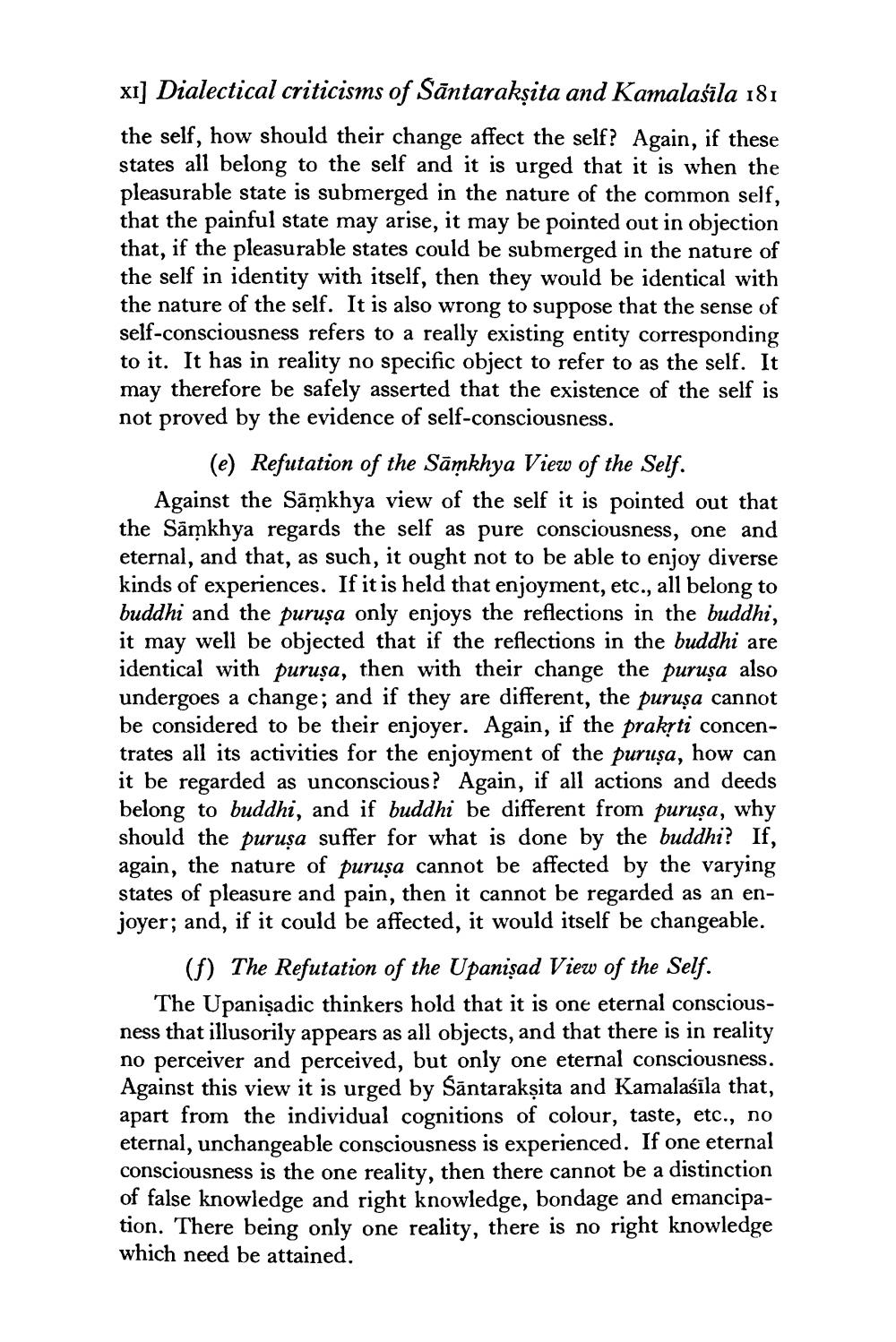________________
xi] Dialectical criticisms of Sāntarakṣita and Kamalašīla 181 the self, how should their change affect the self? Again, if these states all belong to the self and it is urged that it is when the pleasurable state is submerged in the nature of the common self, that the painful state may arise, it may be pointed out in objection that, if the pleasurable states could be submerged in the nature of the self in identity with itself, then they would be identical with the nature of the self. It is also wrong to suppose that the sense of self-consciousness refers to a really existing entity corresponding to it. It has in reality no specific object to refer to as the self. It may therefore be safely asserted that the existence of the self is not proved by the evidence of self-consciousness.
(e) Refutation of the Sāmkhya View of the Self. Against the Samkhya view of the self it is pointed out that the Sāmkhya regards the self as pure consciousness, one and eternal, and that, as such, it ought not to be able to enjoy diverse kinds of experiences. If it is held that enjoyment, etc., all belong to buddhi and the puruṣa only enjoys the reflections in the buddhi, it may well be objected that if the reflections in the buddhi are identical with puruşa, then with their change the puruşa also undergoes a change; and if they are different, the puruşa cannot be considered to be their enjoyer. Again, if the prakrti concentrates all its activities for the enjoyment of the puruşa, how can it be regarded as unconscious? Again, if all actions and deeds belong to buddhi, and if buddhi be different from puruşa, why should the puruşa suffer for what is done by the buddhi? If, again, the nature of purusa cannot be affected by the varying states of pleasure and pain, then it cannot be regarded as an enjoyer; and, if it could be affected, it would itself be changeable.
(f) The Refutation of the Upanişad View of the Self. The Upanişadic thinkers hold that it is one eternal consciousness that illusorily appears as all objects, and that there is in reality no perceiver and perceived, but only one eternal consciousness. Against this view it is urged by Sāntarakṣita and Kamalaśīla that, apart from the individual cognitions of colour, taste, etc., no eternal, unchangeable consciousness is experienced. If one eternal consciousness is the one reality, then there cannot be a distinction of false knowledge and right knowledge, bondage and emancipation. There being only one reality, there is no right knowledge which need be attained.




